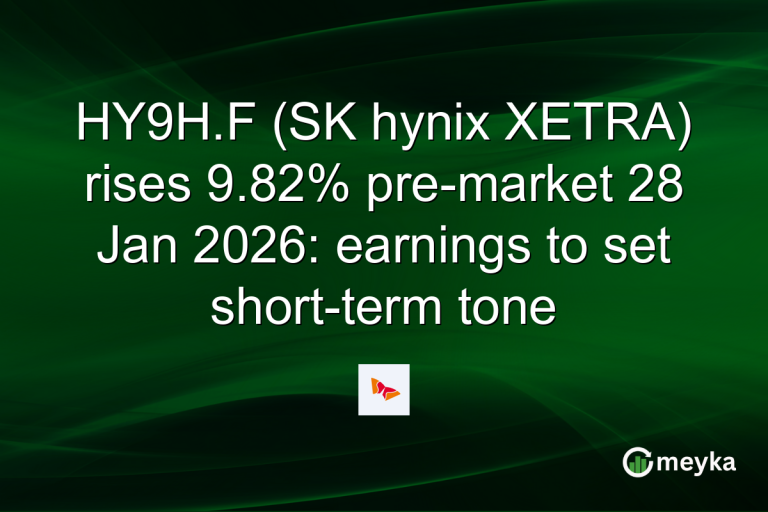Ajinomoto Faces Stealth Marketing Allegations: Impact on Stock and Reputation
Ajinomoto, a prominent player in the packaged food industry, is facing serious allegations of engaging in stealth marketing practices, locally known as ‘ステマ.’ These accusations have created waves in the stock market, resulting in heightened scrutiny from investors. As Ajinomoto seeks to address these concerns, it faces potential challenges to its brand reputation and market position in the consumer staples sector. This unfolding drama highlights the risks companies face regarding regulatory compliance and ethical marketing practices.
Ajinomoto’s Alleged Stealth Marketing Practices
Ajinomoto, with its headquarters in Tokyo and a legacy dating back to 1909, is accused of participating in surreptitious advertising. Such practices involve covertly promoting products to consumers without clear disclosure. These allegations have significantly impacted Ajinomoto’s public image and have pressured management to respond swiftly to restore confidence. According to a recent Nikkei report, the controversy suggests that Ajinomoto may have engaged third-party influencers without transparent agreements. This raises questions about ethical boundaries in marketing.
Market Reaction to Ajinomoto’s Controversy
Following the news of the stealth marketing allegations, Ajinomoto’s stock, 2802.T, exhibited noticeable volatility. On the Tokyo Stock Exchange, the stock closed at ¥4198.0, reflecting a decline of ¥43.0 or 1.01%. With a recent high of ¥4343.0, the current market sentiment indicates investor apprehension amid the controversy. Volume surged to nearly double its average, highlighting heightened investor attention. For investors, this presents both a challenge and an opportunity: assessing the long-term impact on Ajinomoto’s market credibility and potential shifts in consumer trust.
Ajinomoto’s Financial Health Amid Controversy
Despite the controversy, Ajinomoto maintains a strong financial foundation. The company recorded a PE ratio of 120.7, which is considerably higher than industry averages, indicating potential overvaluation. Additionally, its earnings per share (EPS) stands at 34.78, with a recent dividend yield of 1.91%. Key financial metrics suggest resilience. Ajinomoto’s robust operating cash flow per share at 208.40 speaks to its capability to weather short-term market fluctuations. Nevertheless, the company must address the current issues promptly to prevent long-term reputational damage and sustain investor confidence.
Investors’ Consideration: Ethics Versus Profits
For investors, the Ajinomoto stealth marketing scandal underscores a common dilemma: balancing ethical considerations with profit motives. While Ajinomoto’s stock shows resilience, ethical lapses can have prolonged effects beyond immediate financial metrics. Investors should monitor Ajinomoto’s remedial actions and transparency in addressing the allegations. As regulators increase scrutiny over marketing practices, companies like Ajinomoto might face stricter compliance measures in the future. Therefore, the current scenario calls for prudent analysis and potential repositioning of portfolios, considering both ethical implications and financial returns.
Final Thoughts
Ajinomoto’s involvement in alleged stealth marketing practices presents significant challenges to its brand and stock. The market’s initial reaction, with increased volatility and investor attention, highlights the gravity of ethical marketing adherence. While Ajinomoto continues to leverage its strong financials, the ongoing controversy marks a critical period for the company. Investors should keep an eye on Ajinomoto’s response to restore brand integrity and maintain market confidence. Leveraging AI-powered platforms like Meyka for real-time insights and sentiment analysis can offer a competitive advantage in navigating such market challenges.
FAQs
Ajinomoto is accused of engaging in stealth marketing, or surreptitious advertising, where products are promoted without clear disclosure, involving potential use of undisclosed influencers.
Ajinomoto’s stock showed increased volatility and a 1.01% decline, reflecting investor concern amid the stealth marketing allegations. Trading volumes also surged.
Yes, Ajinomoto remains financially robust with strong metrics like a high PE ratio (120.7) and EPS (34.78). However, long-term reputational impacts could influence future performance.
Investors should balance ethical considerations and profitability, monitoring Ajinomoto’s actions to address the allegations, and stay informed on regulatory developments.
Regulatory compliance is crucial, as increased scrutiny can lead to stricter marketing standards. Companies like Ajinomoto must ensure transparent practices to maintain consumer and investor trust.
Disclaimer:
This is for information only, not financial advice. Always do your research.






